
Integrating herd health for improved pig production in Uganda’s central region
CGIAR’s Sustainable Animal Productivity for Livelihoods, Nutrition and Gender inclusion (SAPLING) Initiative is trialing an integrated ‘herd health package’ to assess its impact on pig productivity in Uganda. The innovation package comprising herd health, improved genetics and feeding was co-designed with stakeholders during feedback and co-creation workshops held in September 2022.
As part of the trials, model farms under the management of pig farmer groups are being established to serve as demonstration sites for good housing, improved herd health management, improved feeds and forages as well as improved pig breeds. Four model farms will be set up by the end of October 2023 in Wakiso and Mukono districts, in central Uganda.
Training animal health care workers
In readiness for this and to promote the adoption of good herd health practices, 11 veterinarians and paraveterinarians, including five women, have been trained on reducing disease burden in smallholder pig farms as part of their routine veterinary practice. The trainees (herd health champions) from Wakiso and Mukono district local governments, were trained in July 2023 on different aspects of pig herd health management and welfare including biosecurity, caring for piglets, feeding, caring for the sow, and pen hygiene.
They will mentor and equip farmers with these skills and knowledge on raising pigs in a healthy and profitable environment.
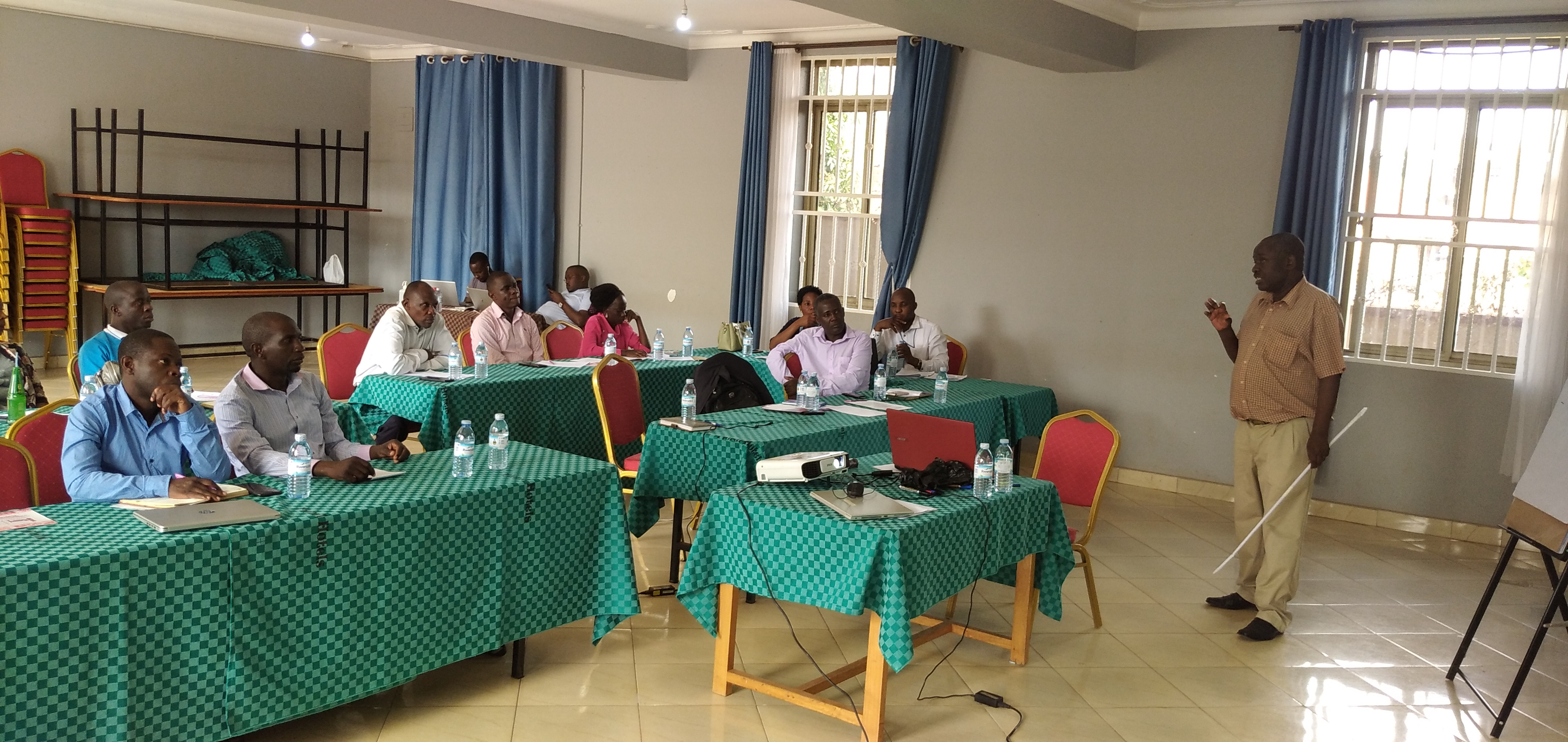
Peter Oba, an animal health specialist with the International Livestock Research Institute (ILRI) and one of the trainers said,
‘ SAPLING is enhancing the capacity of the professionals and paraprofessionals so that as they build the capacity of farmers, we can create a ripple effect that will ultimately improve the overall health, productivity, and welfare of pig herds within the communities in Uganda.’
Setting up model farms
In collaboration with the community leaders, active farmer groups were identified to host model farms. The host farms will be supported to renovate existing pig sheds and serve as farmer learning centres for demonstration of improved housing facilities, including space allocation for different stages of pig growth, piglet care, feeding, waste management, welfare and biosecurity aspects. Two model farms will be established in each of the two SAPLING sites, Mukono and Wakiso districts.
The model farms will also showcase other SAPLING productivity-enhancing innovations such as feeds, forages and improved pig genetics.
Miriam Amuge a pig farmer and chairperson of the 32-member Tufube Women’s Group in Nakisunga subcounty in Mukono, one of the model farm hosts said,
‘our pigs will be less exposed to diseases because of the fencing that is going to be erected and the better feeding methods in the improved sheds will reduce wastage. We are excited to finally get to rear pigs in a productive way.’
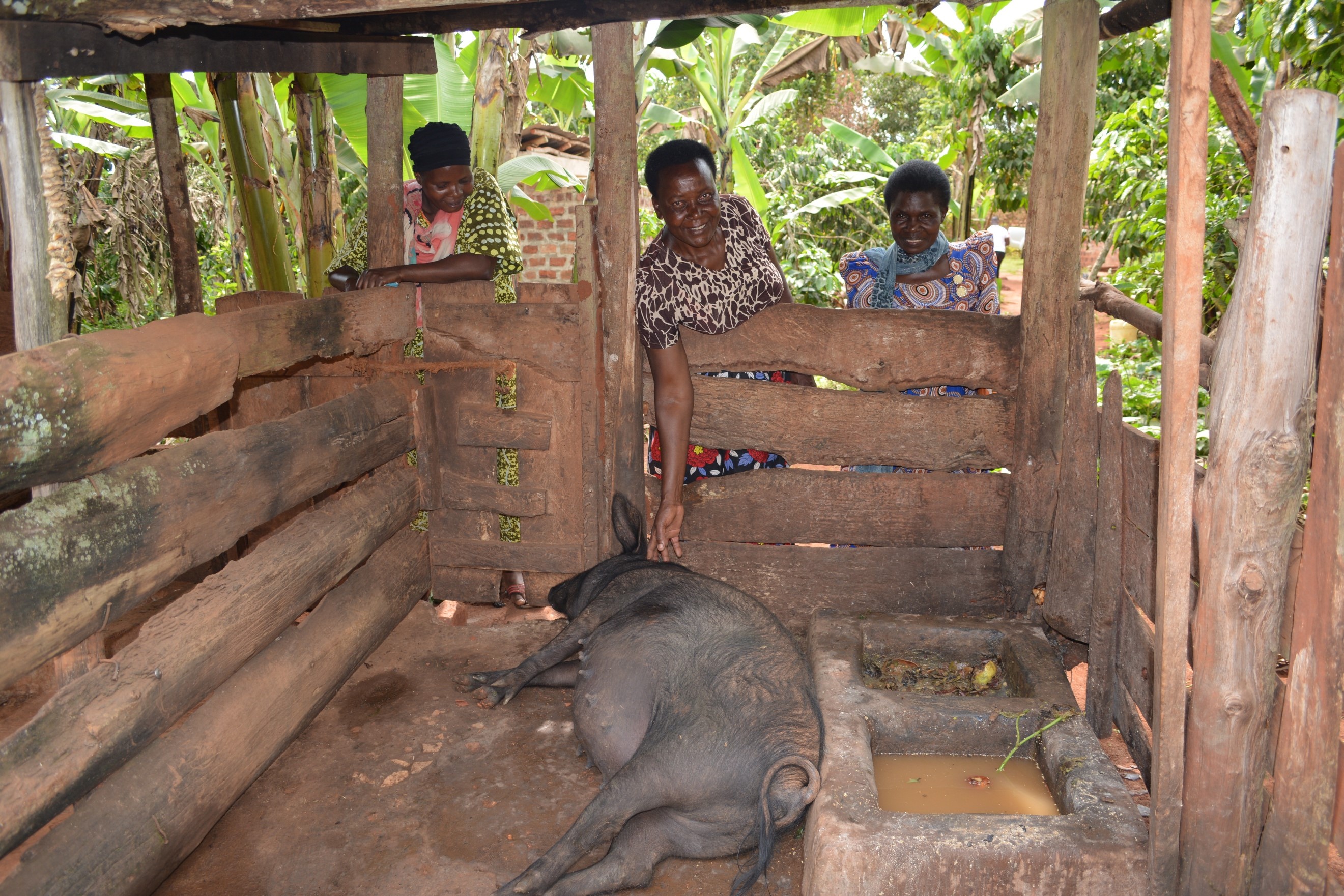
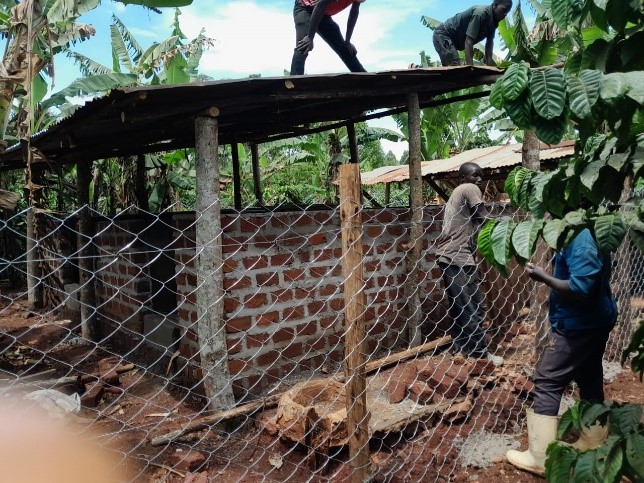
The host farmers have signed a co-funding agreement with ILRI committing to make in-kind contributions in form of building materials like bricks, sand, cement, timber poles and labour among others, towards the reconstruction of the pig sheds. The co-funding was necessary to demonstrate commitment from the farmer groups and reinforce ownership. ILRI on the other hand provides biosecurity materials including fencing items; improved water system including water tanks, piping and drinking nipples; waste management system; feeding troughs as well as professional expertise during the construction and farm remodeling process.
Host farmers will also receive forage seeds for Bracharia mulato and sunn hump and professional support to establish forages to improve pig feeding. They will also be assisted to access artificial insemination services for improved pig breeds which grow faster and are more productive compared to local breeds
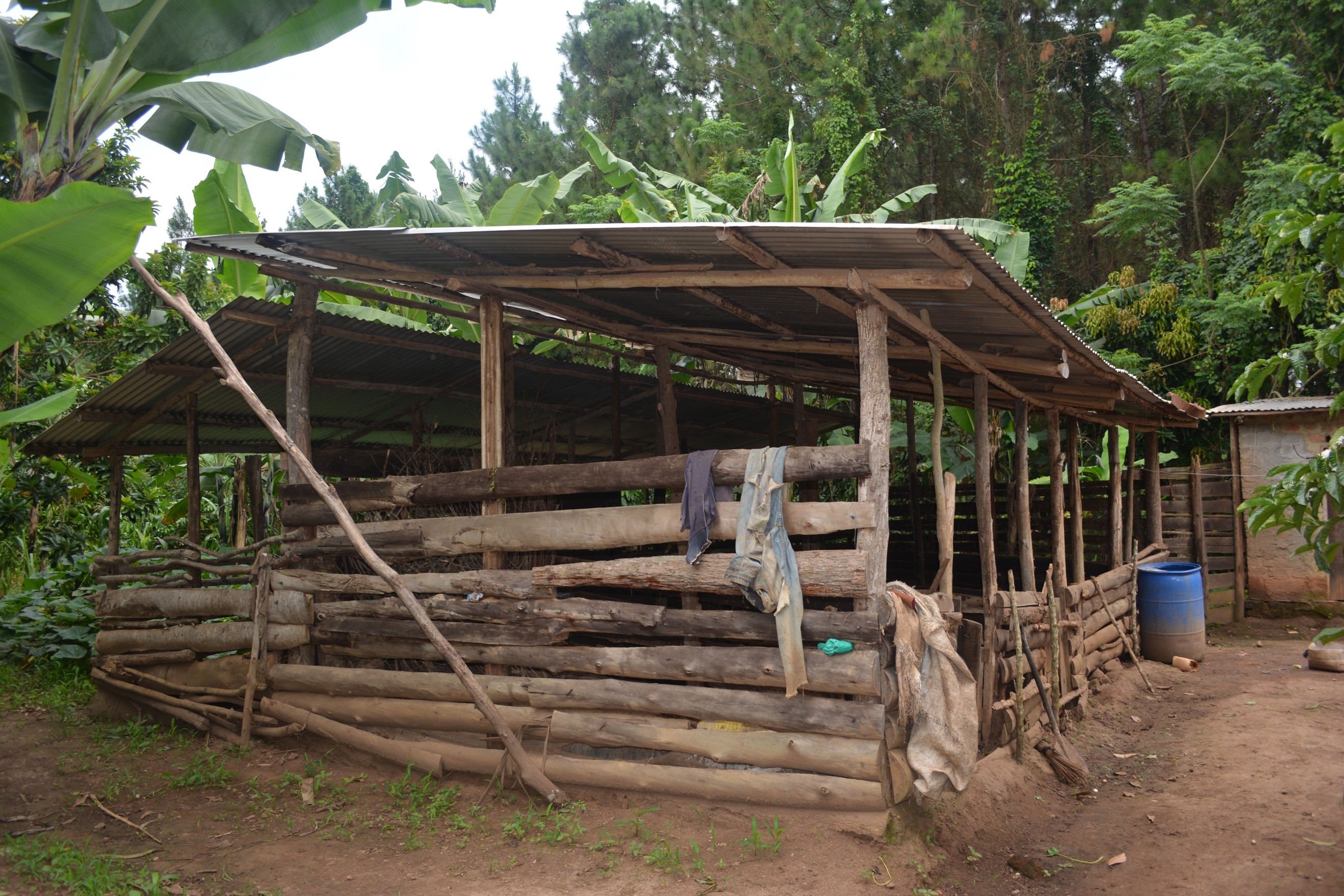
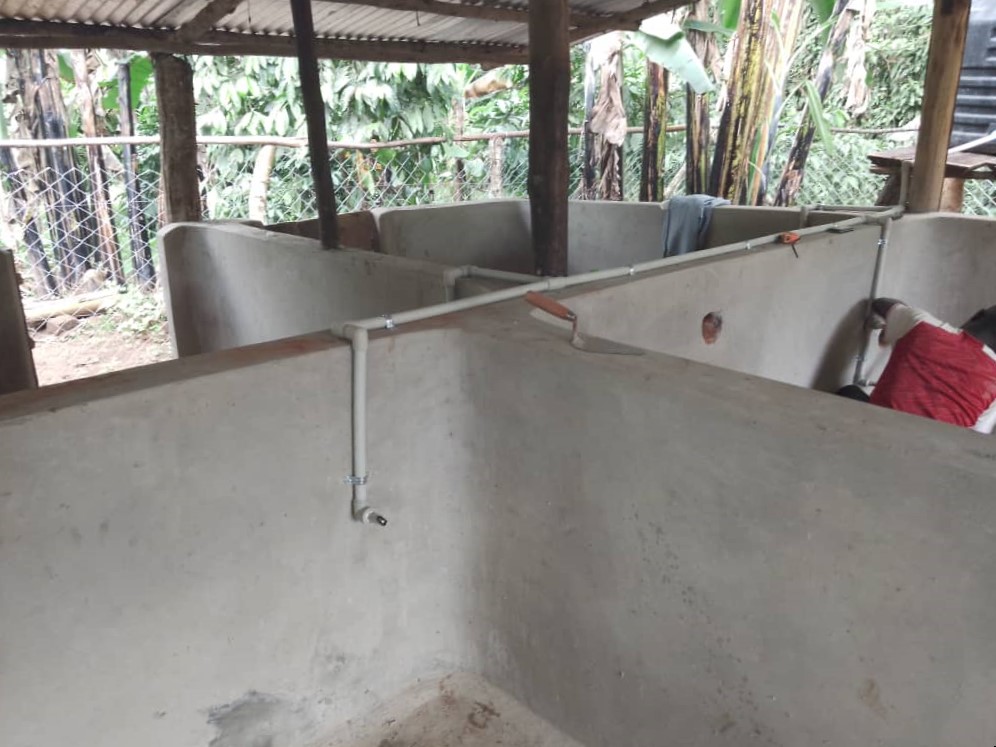
Learning for the future
After this stage of the trial, farmer exposure visits will be organized to the model farms to promote knowledge sharing and encourage uptake of the innovation package components. The training provided will promote overall health, welfare and growth of pigs in the two districts.
Later, baseline and end line surveys will assess the knowledge, attitudes and practices of pig keepers before and after establishment and visiting the model farms. Lessons learned from this initiative will inform and guide the scaling of interventions.





